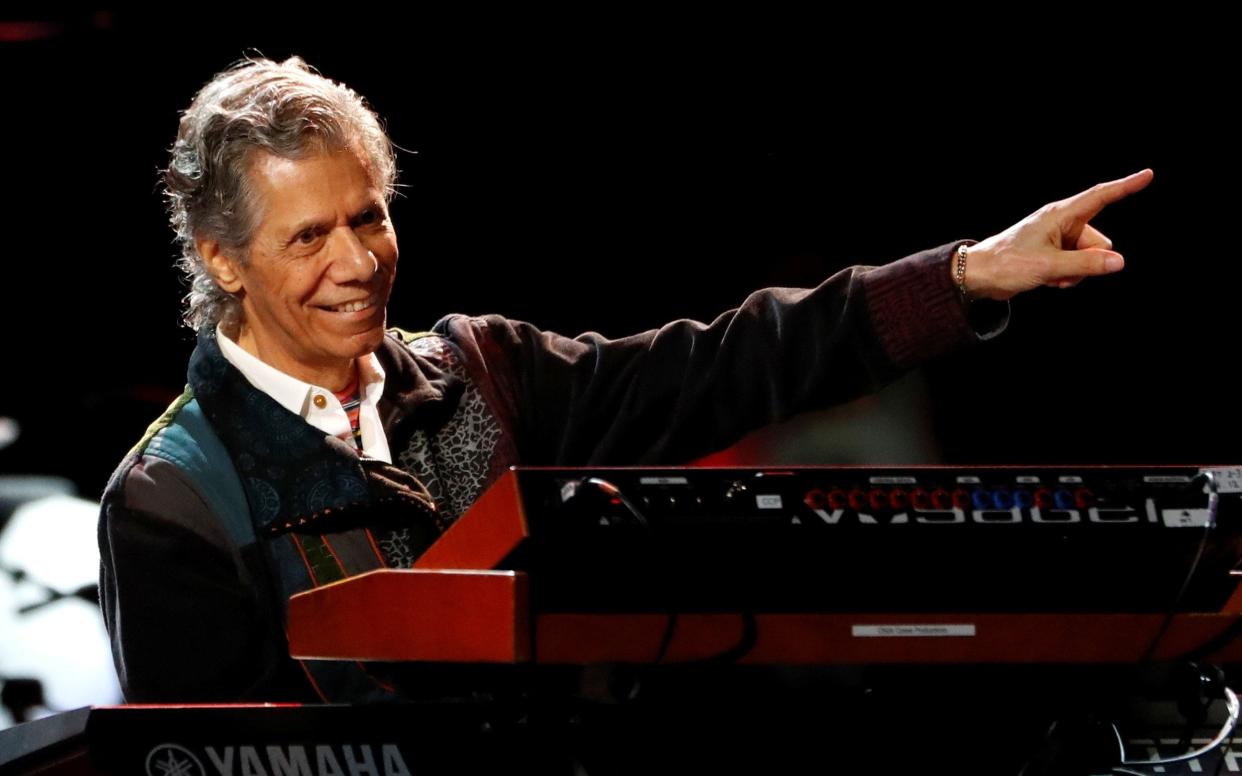‘What most people call purists, I call arrogant’: Chick Corea remembered

It’s always a shock when a revered musician dies, but the news of Chick Corea’s death brought an especially sharp pang, as it seemed to come out of the blue. When I talked to him last February in connection with his concert at the Barbican in London – cancelled because of the pandemic – he seemed youthful as ever despite his 79 years, and was eager to talk about his plans for the future.
In between touring he was busy working on a trombone concerto for the New York Philharmonic, and setting up an online Chick Corea Academy to introduce young players to the joys of playing jazz. “I don’t get involved in politics, but I do care about the state of the world,” he said, "And I think staying involved in music, passing on what I know to the next generation, is the most useful thing I can do.”
Corea had been at the forefront of jazz ever since he appeared as a brilliant young sidesman in the early 1960s in Stan Getz’s band, and then alongside Miles Davis in several albums of the late 1960s including the famous Bitches Brew. In the early 1970s he produced two albums of solo improvisations which jazz aficionados rate very highly, and they are equally enthusiastic about his move into the more experimental world of free jazz, playing alongside such luminaries as Anthony Braxton and Dave Holland.
About his massive commercial success with the jazz fusion band Return to Forever, which blended elements of rock and jazz, critics weren’t so sure. Whenever he was accused of selling out, Corea would laugh. “There's a group of people who from one point of view could be called purists – I call them arrogant,” he told me. “They cling to what they know, and have no curiosity about the new.”
The great thing about Corea is that he combined endless curiosity with a benign fondness for all the things he had already encountered. No style he had once inhabited was ever left behind, as I discovered on numerous occasions when I heard him play, usually in front of an adoring packed house at the Barbican.
He once launched off a joint improvisation with his old friend Herbie Hancock in pure free-jazz style, the sound of scrunched paper and brushed strings soon morphing into that transcendent spaciness which is such a feature of African-American jazz, but which this Southern Italian shared in full measure.
Sometimes the fluency was so overwhelming that one felt almost drunk, but Corea could be sharply economical too, as he proved at a wonderful solo concert back in 2014. Here Thelonious Monk’s Work, a Chopin Mazurka and a Scriabin Prelude took on fascinating new shapes under those questing, agile fingers.
That fluency was born from hours of solitary experimenting at the piano as a child. Corea was fortunate to have doting parents who noticed the four-year-old boy’s interest in music, and bought him a piano. Corea remembers they had to deliver it by crane through his bedroom window, as it was too big to go up the stairs. Soon he was playing Chopin and Beethoven and composing little pieces.

But one essential realisation about music only arrived later, when he got one of his first playing jobs, with a Latin dance band. “Up to that point I was a very serious and introverted young man – I would sit at the piano for hours experimenting without ever thinking about playing for an audience,” he told me. “It was playing in Latin bands that made me understand music was for people, it could have a big effect on them.”
It was a lesson that Corea never forgot. One of the things that made his concerts treasurable was the way he infused his fascination for music’s patterns and forms with a desire to entertain, a desire that many younger jazz musicians seem to have abandoned as somehow beneath their dignity.
In a message Corea left behind for his fans, he said: “It is my hope that those who have an inkling to play, write, perform or otherwise, do so. If not for yourself then for the rest of us. It's not only that the world needs more artists, it's also just a lot of fun.” Amen to that.


